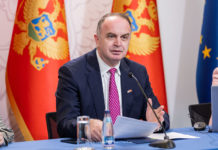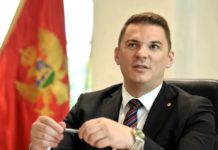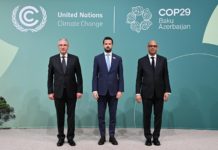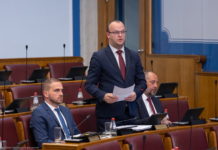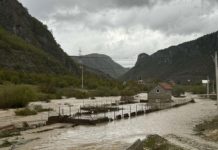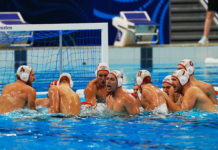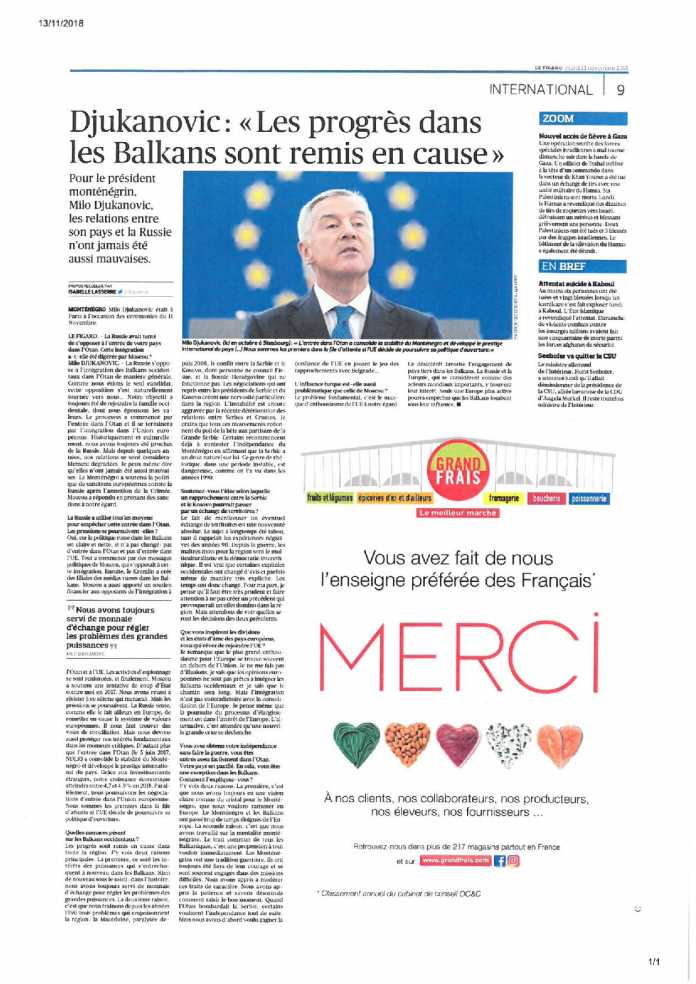Podgorica, (MINA) – Progress in the Western Balkans has been called into question, President Milo Djukanovic has stated adding that only an active Europe can prevent the Balkans from falling under the influence of Russia and Turkey.
He said this in an interview with the French newspaper Le Figaro, done during his visit to Paris for the commemoration of the end of the First World War.
Asked what the main threats to the Western Balkans are, Djukanovic replied that progress in the whole region has been called into question.
“I explain this by two key circumstances. The first refers to the interests of great powers that are clashing once again in the Balkans,” the President said.
He noted that it is a well known fact that throughout its history the region has been used as ‘a bargaining chip in solving the problems between great powers’.
“The second circumstance is that, since the 1990s, we have been dragging three problems that are poisoning the region: Macedonia paralyzed since 2008, the conflict between Serbia and Kosovo which end result is unclear and the unfunctional Bosnia and Herzegovina,” Djukanovic said.
The President noted that the new talks between the presidents of Serbia and Kosovo are creating special nervousnesses in the region.
“The instability has been deepend by the latest deterioration in relations between Serbia and Croatia. I fear that such a development serves to encourage the proponents of the Greater Serbia. Some of them are relaunching their campaign denying Montenegro’s independence and arguing that Sebia has a natural claim to Montenegro,” Djukanovic said, adding that such rhetoric is dangerous at times of instability.
Asked if he supports the idea of exchange of territories between Serbia and Kosovo, he replied that the mention of such a potentional solution to the dispute is a complete novelties.
“That topic has long been a taboo, because it reminded us of the bad experiences from the 1990s. After the end of wars, the region was mostly talking about multiculturalism and multi-ethnic democracy,” the President said.
He added that some Western capitals have now changed their viewpoint quite explicity.
“In other words, now is a different time. I believe we need to exercise caution and be careful not to create a precedent that will cause a domino effect in the region. Let’s wait and see the decisions reached by the two presidents,” Djukanovic said.
Commenting on the diverging views about EU enlargement among the EU member states, Djukanovic noted that euro-entusiasm seems to be most prominent outside the Union.
He said that he is aware that the European public is not ready for integration of the Western Balkans and that the region still has a long journey ahead.
“However, enlargement is not in contradiction with Europe’s consolidation. I even believe that the continuation of the enlargement process is in Europe’s interest. An alternative is to wait for some new crises to emerge,” Djukanovic concluded.
Longer version of article is available on a link MINA ENGLISH SERVIS






